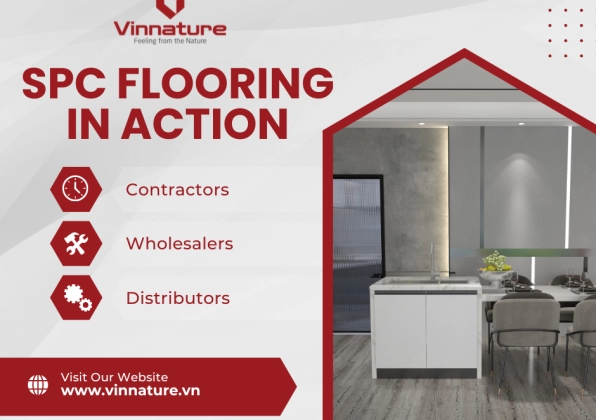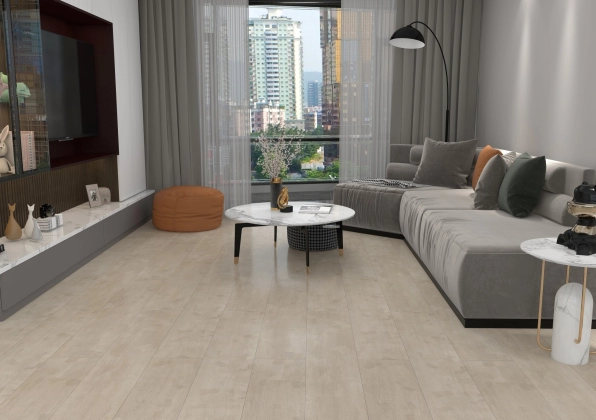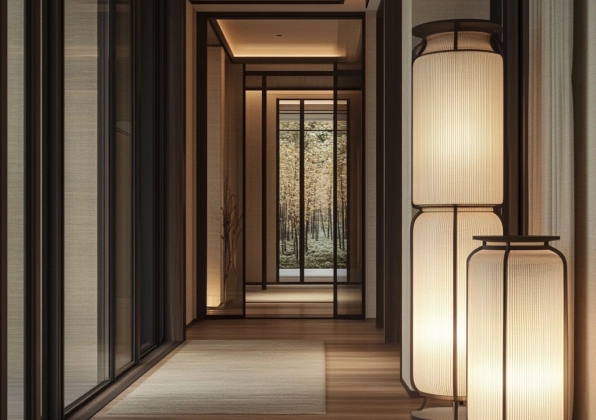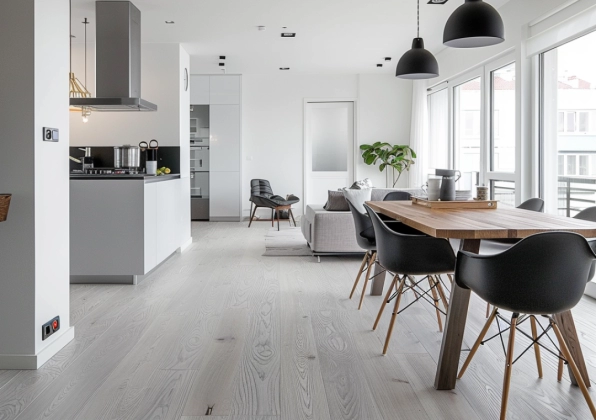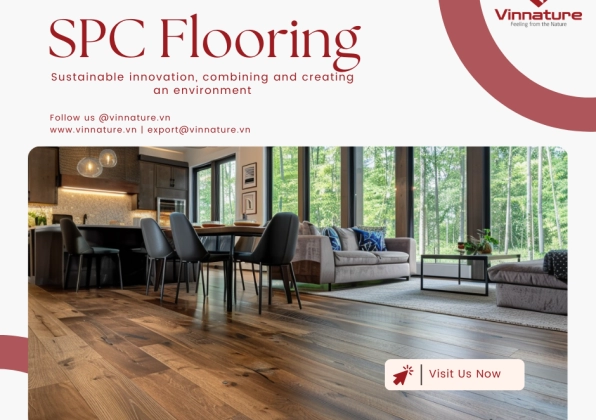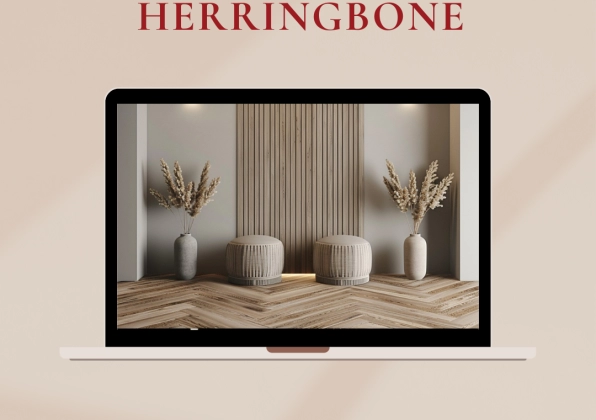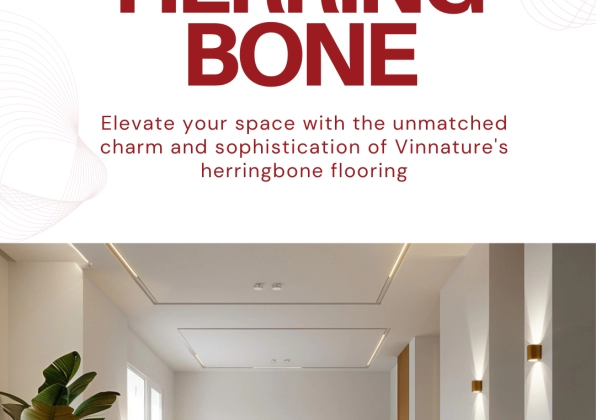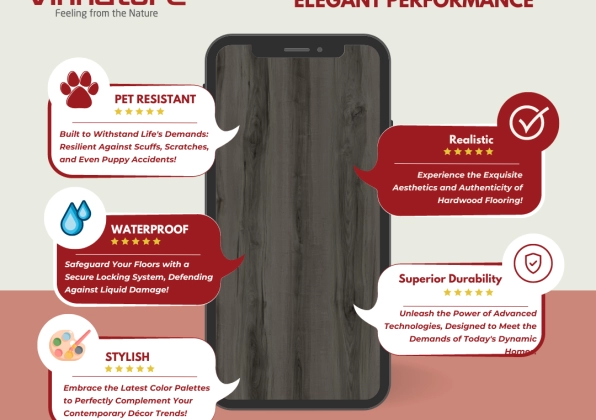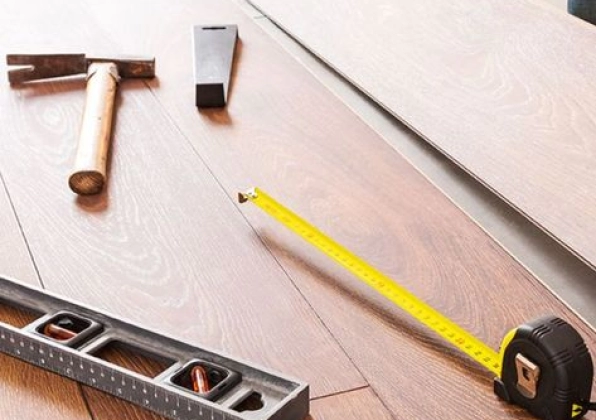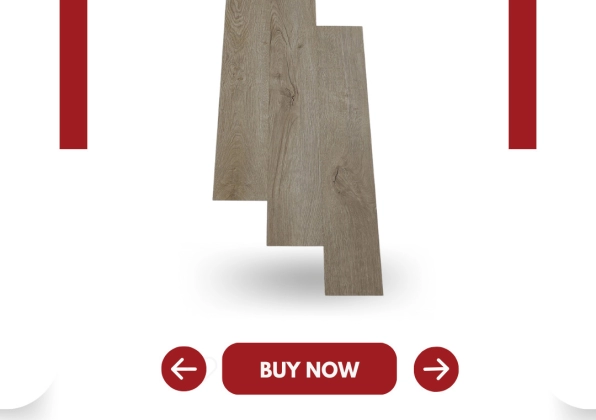Choosing the right flooring for your home can be overwhelming, especially with so many options available. Four popular choices today are Laminate, SPC (Stone Plastic Composite), LVT (Luxury Vinyl Tile), and Vinyl Flooring. Each type has its unique features, benefits, and potential drawbacks. In this guide, we’ll compare these four flooring options based on key factors like durability, installation, maintenance, and overall performance, helping you make an informed decision for your space.
1. Durability and Performance
Laminate Flooring:
Laminate floors are made from compressed wood fibers with a protective wear layer on top. While laminate is durable and resistant to scratches and stains, it is more susceptible to water damage compared to other options. Laminate can warp or swell if exposed to excessive moisture, so it may not be the best choice for high-humidity areas like bathrooms or kitchens.
SPC Flooring:
SPC (Stone Plastic Composite) flooring is engineered from a combination of limestone and PVC, making it extremely durable and waterproof. SPC is known for its high resistance to impact, scratches, and wear, and it is an ideal choice for high-traffic areas and moisture-prone environments. Unlike laminate, SPC won’t warp, buckle, or swell when exposed to water, making it a superior option for bathrooms, kitchens, and basements.
LVT Flooring:
Luxury Vinyl Tile (LVT) is a premium vinyl option that mimics the look of natural wood or stone. LVT is extremely durable, resistant to moisture, and can handle foot traffic without losing its appearance. While LVT is more flexible than laminate, it is generally more prone to scratches over time, especially in high-traffic areas. However, it is still a good choice for most residential settings and offers better water resistance than laminate.
Vinyl Flooring:
Vinyl flooring is a broad category that includes both sheet vinyl and luxury vinyl plank (LVP). It is known for its durability and water resistance, making it ideal for areas with moisture exposure. Like LVT, vinyl flooring is highly resistant to scratches, stains, and wear. However, depending on the quality, it may show dents or indentations from heavy furniture or sharp objects.

2. Water Resistance
Laminate Flooring:
Laminate is not waterproof but generally offers some resistance to surface water. However, exposure to moisture can lead to swelling and damage over time, which makes it a less ideal option for areas prone to spills or high humidity.
SPC Flooring:
SPC flooring is 100% waterproof, making it the best option for wet environments like kitchens, bathrooms, and basements. You won’t have to worry about moisture-related issues with SPC, and its stone composite core adds extra durability against water damage.
LVT Flooring:
LVT is highly water-resistant, and most high-quality options are also waterproof. This makes LVT a great choice for bathrooms, kitchens, and other areas where water is present. However, it is important to check the manufacturer’s specifications for water resistance ratings, as some LVT may be more moisture-resistant than others.
Vinyl Flooring:
Like LVT, vinyl flooring (including both sheet and plank vinyl) is also waterproof, making it an excellent choice for moisture-prone areas. Whether you choose sheet vinyl or vinyl plank, you’ll have the peace of mind that comes with knowing your floors won’t be damaged by water.

3. Ease of Installation
Laminate Flooring:
Laminate is known for its easy click-lock installation system, which doesn’t require glue, nails, or staples. It can be installed over most existing floors with minimal preparation, making it a popular DIY option. However, laminate requires careful acclimation to avoid gaps or buckling after installation.
SPC Flooring:
SPC flooring features a similar click-lock installation system to laminate, making it just as easy to install. The rigid core of SPC makes it simple to lay down, and since it is water-resistant, it can be installed in areas where traditional wood floors might not be suitable. The extra durability of SPC means it can also withstand rougher handling during installation.
LVT Flooring:
LVT flooring can be installed using glue-down, click-lock, or loose-lay methods, depending on the product. The installation process can be a bit more involved compared to laminate or SPC, especially if glue is required. However, click-lock and loose-lay options make it easier for DIYers to install LVT themselves.
Vinyl Flooring:
Vinyl flooring comes in two main forms: sheet vinyl and vinyl plank. Sheet vinyl typically requires professional installation, while vinyl plank often features an easy-click installation system, much like laminate and SPC. DIY installation is possible with vinyl plank, but sheet vinyl installation can be more challenging, especially in terms of fitting and securing seams.

4. Maintenance
Laminate Flooring:
Laminate is relatively easy to maintain. Regular sweeping or vacuuming and occasional mopping are enough to keep it clean. However, you should avoid excessive water exposure to prevent moisture from seeping into the seams, which can lead to swelling and damage.
SPC Flooring:
SPC flooring requires minimal maintenance. It can be swept, vacuumed, or mopped without worry of water damage. Its waterproof surface makes cleaning up spills quick and easy, and it won’t stain or warp like other flooring materials.
LVT Flooring:
LVT is low-maintenance, requiring only regular sweeping or vacuuming and occasional mopping. It’s important to avoid harsh chemicals, as they can damage the surface. For best results, use a damp mop with a gentle cleaner to preserve its appearance.
Vinyl Flooring:
Vinyl flooring is also easy to care for, requiring only routine cleaning with a broom, vacuum, or damp mop. It’s resistant to stains and won’t fade or discolor easily, making it ideal for busy households. Be sure to avoid harsh cleaners that can damage the surface over time.

5. Cost
Laminate Flooring:
Laminate flooring is one of the most affordable options, making it a great choice for budget-conscious homeowners. It provides a stylish appearance at a fraction of the cost of hardwood or stone flooring.
SPC Flooring:
SPC flooring tends to be more expensive than laminate but is still relatively affordable compared to hardwood or tile. Given its durability, waterproof nature, and overall performance, SPC offers excellent value for money, especially for areas exposed to moisture.
LVT Flooring:
LVT is typically more expensive than both laminate and vinyl, particularly when opting for higher-end products with advanced features like enhanced water resistance and luxury designs. However, LVT offers the luxury look of wood or stone without the high cost.
Vinyl Flooring:
Vinyl flooring can range from budget-friendly sheet vinyl options to higher-end vinyl plank products. In general, vinyl tends to be less expensive than both LVT and SPC, making it a cost-effective choice for larger spaces or for homeowners on a budget.

Which Flooring is Right for You?
- For Budget-Friendly and Easy Installation: Laminate offers the best value, especially if you’re looking for a stylish, easy-to-install floor at an affordable price.
- For Waterproof and High-Performance Needs: SPC flooring is the top choice for durability, water resistance, and long-term performance, making it ideal for kitchens, bathrooms, and basements.
- For a Premium Look with Superior Water Resistance: LVT provides the luxury look of natural materials with excellent moisture resistance and durability, perfect for high-end applications.
- For Versatility and Ease of Maintenance: Vinyl Flooring (whether sheet or plank) is a versatile, low-maintenance choice that works well in any space, especially in moisture-prone areas.

No matter which flooring option you choose, each has its unique advantages. Consider your priorities—whether it’s budget, performance, aesthetics, or ease of care—before making your decision. If you need more information or a free quote, feel free to contact us today!

